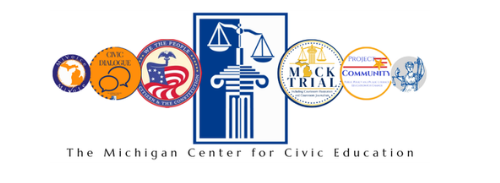Students will better understand the concept of the Electoral College by participating in a mock Electoral College vote.
Civics Lessons
The Vote
Appreciating Democracy
This lesson is designed to teach students to appreciate the most basic practices of democracy in the United States: The lesson can be taught in three or four 45-minute class periods. At the heart of the lesson are three easy-to-teach activities (or simulations).
The President’s Roles and Responsibilities: Understanding the President’s Job
Through these activities, students learn about the roles and responsibilities of the U.S. president and their own roles as citizens of a democracy.
Case of the Shipwrecked Sailors
Sudents review a case study which helps them distinguish between legal and ethical questions
Matching Game with the U.S. Constitution
By the end of this lesson, students will understand what the Constitution is and
what it does for them; recognize key images related to the
Constitution and its history.
We the Students: Writing a Class Constitution
The Preamble to the U.S. Constitution sets out the purposes or functions of American government as envisioned by the framers. Using the Preamble as a guide, students will identify the purposes of their own classroom and create a class “constitution.”
This is Our Town Too: The Jury Process
In this lesson students learn about the process of voir dire and the use of peremptory challenges. Through the study of three actual Supreme Court cases, students gain background information for a classroom lesson.
Equal Justice Under Law
In this lesson, students explore the cause-and-effect relationships
between historical events and the development of constitutional
principles that protect the rights of all people in America today. In its first constitutional challenge to the equal protection clause of the Fourteenth Amendment, the U.S. Supreme
Court decided to hear a case brought by a Chinese immigrant, not an American citizen.
A History of Conflict Resolution and the Jury System
Students will gain an understanding of the modern jury system and historical methods of conflict resolution. They will compare and contrast the different trial methods of past and present, and analyze each as a way to resolve conflict. They will examine jury trials and the responsibility to decide the facts pertaining to key questions that jurors must answer. Then students will write a persuasive essay arguing for their preferred method of trial.
Becoming an Informed Voter: Preparing for the General Election
This lesson focuses on a voter’s need to be fully informed prior to casting a vote on Election Day and how to acquire the necessary information. Students learn what a yes or no vote or a decision to abstain means on a ballot. Students learn the definitions of amendment,initiative, and referendum. Students are given the opportunity to think critically and to learn firsthand why voters need to be fully informed about ballot questions.

